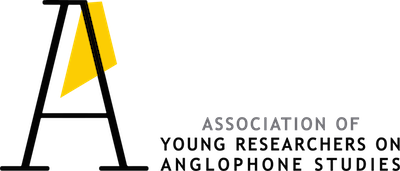Nothing is gained by teaching a parrot a new word.
George Orwell
It is with grand illusion that we publish our third volume of GAUDEAMUS. This journal originated from the need of young researchers to feel secure displaying their reflections in a system that urges us to publish endlessly and tirelessly and that ranks ideas and examinations as if some voices were more worthy of being listened to and read than others. In ASYRAS, the Association of Young Researchers in Anglophone Studies, we created a haven of discussion and introspection where authors could share their research leaving behind those anxieties of not keeping up with the imposed models of contemporary academia.
Slow academia is needed more than ever in these unprecedented times, where we face uncertainty due to the appraisal of willing ignorance and one-click infoxication. Parroting is loud, but communication is lacking. Scholars and our communities must stop and reflect upon the directions we are driven to as social beings; the futures imagined, the pasts forgotten—just as Orwell did in the midst of World Wars. We are in charge of placing humanities at the centre of academia, reassessing its relevance as a site of ontological discussion where to explore sociality. Philological studies hence are pierced by that humanitarian approach that becomes the cornerstone of the critical vision required to endeavour any scientific investigation regardless of the field. The nature of academia must be critical thinking, permeating every theory and nurturing every reader.
Thus, manuscripts like the ones collected here in this volume invite the audience to challenge Orwell’s fears of a society devoid of self-awareness that parrots the hegemonic thought while negating its interdependence. For every censored book, every dishonest datum, and silenced discourse, humanities are the pivotal solution. George Orwell scrutinised the pains of his generation and grimaced at the background system underpinning such horrors. Alas, he did so with despondent pessimism. Critical visions must deconstruct and stagger the cultural constructs that shape us, but with the hope of breathing life into a more promising chapter. Those who never dare to do so are dominated by unfounded fears and hatred against the other, waiting to see whose boot stamps their face first—for ever. I believe this life is not worth pursuing.
We truly hope you enjoy reading these pages and, most importantly, that from their ink, new ideas arise, with the promise of actively cultivating them at your desired pace, to later fit words together so that hopeful, utopian futures sprout.
Almudena Machado-Jiménez
President of ASYRAS and Associate Editor of Gaudeamus
Table of Contents
Credits (pp. 1-4)
Foreword (pp. 5-6)
Articles
Laia Lacasa-Cervelló
Palaeographical Analysis of London, Wellcome Library, MS. 3771 (pp. 55-82)
Sinéad Linehan Gómez
Isabel Marqués López
David Muiños García
René Tissens
Notes
Bionotes of contributors (pp. 175-177)
Editorial policy and author guidelines (pp. 179-187)

This work is licensed under a Creative Commons Attribution 4.0 International License.


